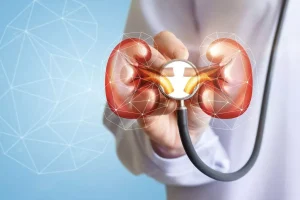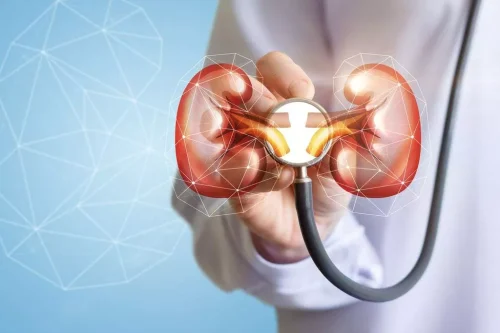
Heavy drinking, particularly withdrawal from heavy drinking, may trigger seizures in those with epilepsy. Alcohol may also affect anti-seizure medications, which could trigger seizures. Ultimately, regular medical check-ups serve as a preventive strategy for maintaining quality of life and prolonging independence, particularly for those navigating the challenges of alcohol recovery. This proactive approach enhances overall health and helps in the early identification of factors that could lead to alcohol-induced seizures.
Treatment Options for Alcohol Withdrawal Seizures
If people withdraw from alcohol after heavy use, it is important to do so with medical supervision. Alcohol use can trigger seizures for individuals with preexisting conditions like epilepsy, especially during withdrawal. Not everyone who experiences a seizure has epilepsy, which is typically diagnosed after two or more seizures. The link between alcohol withdrawal and the onset of seizures is well-documented.
Update on the Neurobiology of Alcohol Withdrawal Seizures
- Fortunately, treatment options and medications are used in alcohol withdrawal management.
- At Discover Recovery, we offer personalized alcohol addiction treatment programs to help you get sober and stay sober.
- Treatment of alcohol withdrawal is usually based on the severity of withdrawal.
- People who go through depressant withdrawal can have more severe symptoms with subsequent withdrawal periods.
Understanding if you are at risk of an alcohol withdrawal seizure is an important step when you are considering stopping alcohol use, especially after long-term or heavy drinking. Certain personal and medical factors can increase the likelihood of seizures during withdrawal, and being aware of these risks helps you take the right precautions in order to stay safe. Certain triggers, such as stress, dehydration, lack of sleep, or detoxing without support, can also make seizures more likely. Thankfully, just like other mild and severe symptoms of alcohol withdrawal, seizures can be dealt with as long as the individual seeks alcohol withdrawal seizure treatment.
- Of people who attend AA, 44% of those who remain free of alcohol for one year probably will remain abstinent for another year.
- While the reason for this is not fully understood, alcohol does create changes in receptors in your brain that affect your likelihood of having a seizure.
- Generalized tonic–clonic seizures (rum fits) are the most dramatic and dangerous component of the alcohol withdrawal syndrome.
- If you or someone you know experiences these symptoms, seek help immediately.
- Alcohol Withdrawal Seizures happen when chronic heavy drinkers suddenly stop drinking alcohol.
- For those with prior withdrawal experiences, the brain “remembers” the stress and reacts more intensely each time.
- You should report your drinking history straightforwardly to your doctor so you can be treated safely for withdrawal symptoms.
Can alcohol trigger seizures?

From there, you may continue in residential or outpatient addiction treatment, depending on your needs. Addiction treatment often involves cognitive behavioral therapy (CBT), family therapy, group and individual therapies, and therapies to address co-occurring mental health issues. The main concern over the development of delirium tremens during alcohol withdrawal is the threat of mortality that comes with it. Delirium tremens is estimated to come with a 35% risk of death if you go through it without treatment.

Alpha2-adrenergic agonists like clonidine and dexmedetomidine should not be used alone to prevent alcohol withdrawal seizures or delirium as they “do not treat the underlying pathophysiology” (79). Data on dexmedetomidine use are limited in alcohol withdrawal syndrome, and conflicting results require further investigation with randomized controlled trials. A Cochrane review of studies using baclofen for acute withdrawal syndrome found very low-quality evidence and no greater efficacy when compared to placebo, diazepam, and chlordiazepoxide (38). Seizure risk and delirium were not assessed as outcomes, and the reviewers concluded that there was insufficient and very low-quality evidence to draw any conclusions (38). In addition, alpha 2-adrenergic agonists (clonidine), beta-blockers, or dexmedetomidine should not be used in the prevention or alcoholism treatment of alcohol-withdrawal seizures (79). Alcohol withdrawal and tiredness are closely linked, as the body’s adjustment to the absence of alcohol can lead to a range of physical and emotional symptoms.
Understanding the Co-Occurrence of PTSD and Alcohol Abuse
These have remained landmark articles, forming a basis for our current knowledge. Most alcohol withdrawal seizures are generalized tonic-clonic seizures, commonly referred to as “grand mal” seizures. These involve a loss of consciousness and violent muscle contractions throughout the body. Seizures typically happen within 6 to 48 hours after the last drink, but the exact timing can vary based on the individual’s drinking history and other health factors. Binge drinking can trigger alcohol withdrawal seizures 6-72 hours after drinking stops.

Considerations for Co-occurring Conditions
However, they may cause people to fall and sustain potentially serious injuries, such as head injuries. Alcohol seizures may share symptoms with seizures that are not linked to alcohol. A person with epilepsy should speak with their doctor to determine how much alcohol, if any, is safe to consume with their condition. This may be due to alcohol’s effect on the brain, sleep, and anti-seizure medications. For long-term management, medications such as acamprosate and naltrexone have proven effective in treating AUD and can help reduce or eliminate alcohol use.

Explore Long-term Recovery Planning at The Springboard Center
- This figure increases to 91% for those who have remained abstinent and have attended AA for five years or more.
- Severe anxiety can exacerbate other withdrawal symptoms and increase the likelihood of seizures.
- By helping families understand the nature of addiction and its impact, therapy sessions create a supportive atmosphere that can reinforce the individual’s commitment to sobriety.
- In such cases, alcohol withdrawal may not occur when they cut back or quit drinking.
- Previous withdrawal episodes appear to be the most reliable predictor of who is at risk for future withdrawal, with or without seizures.
For abusers, the cessation of drinking can significantly increase the seizure threshold. There is no definitive cutoff for what amount of alcohol you have to drink to experience withdrawal symptoms that increase the risk of seizures. As a general rule, the longer you have been drinking over time and the more you drink, the higher your risk for developing withdrawal symptoms, which may include seizures. Seizures are relatively common during alcohol withdrawal, affecting about 5-10% of people who alcohol withdrawal seizure stop drinking after heavy use. Those most at risk include individuals with a history of alcohol seizures, repeated withdrawal episodes, or pre-existing health conditions like epilepsy or brain injuries. When people with AUD attempt to quit drinking, they can experience withdrawal symptoms, including seizures or convulsions.
It will also talk about why they happen, how they are treated, and how you can prevent them from happening. The seizures typically manifest as convulsions or episodes of shaking and can vary in severity. It is recommended to rule out structural causes of seizures in patients with a first seizure, status epilepticus, or in patients where head trauma is suspected (27). A CT scan of the brain suffices in the acute setting, although an MRI is preferable if there is a question of an underlying epilepsy.